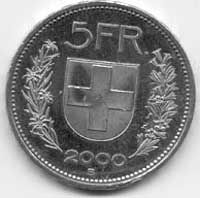Swiss Bank Account Advantages
Privacy
Your relationship with your Swiss bank can be compared to doctor/patient confidentiality or the private information you might share with an attorney. Swiss law forbids bankers to disclose the existence of your account or any other information about it without your consent (except for certain circumstances, which we'll discuss later). Where the similarity ends is when that privacy is violated. Whereas in the United States, if your doctor or attorney violates your confidence you must begin legal action; in Switzerland, if a banker divulges information about a bank account without permission, immediate prosecution is begun by the Swiss public attorney. Bankers face up to six months in prison and a fine of up to 50,000 Swiss francs. And, you have the option of suing the bank for damages. Needless to say, Swiss banks are very careful about protecting your privacy.
The only exceptions to the Swiss banking privacy rule are criminal activities such as drug trafficking, insider trading or organized crime, which we'll talk more about later.
Advertisement
Low Risk
So privacy is a big deal if you have money you don't want other people to know about, and unless you're a criminal it's highly unlikely anyone can ever find out about your account. For example, doctors who might be sued for malpractice might have money in a Swiss account to prevent them being totally wiped out in the event of lawsuit. Unethical, yes, but it happens. Really, anyone can have assets that they want to protect from attack. Sometimes, though, privacy isn't the main reason people want a Swiss bank account. Switzerland has had an extremely stable economy and infrastructure for many years and hasn't been at war with another country since 1505. Swiss bankers are also highly trained in investing and know how to grow your money.
Increasing your wealth means little if your money isn't protected. So, how safe is your money in a Swiss bank? Depositor protection in Switzerland is governed by the Swiss Bankers Association's (SBA) self-regulatory Depositor Protection Agreement and, since July 1, 2004, was also codified into the Swiss Banking Act with a few additional requirements that significantly strengthened depositor protection in Switzerland [Source: SwissBanking.org]. The revised Depositors' Protection Agreement covers all deposits and is also applicable to non-bank securities dealers. Protecting depositors is vital in maintaining public confidence in the Swiss banking system and, in order to strengthen this confidence, the SBA had drawn up a self-regulatory Depositor Protection Agreement with its member banks in 1984. This agreement guarantees that, in the event of a bank failure, depositors will rapidly receive their legally privileged claims. As an additional safety measure, Swiss law demands high capital adequacy. Swiss banks can therefore certainly be counted amongst the safest in the world.
In fact, the Swiss franc is considered one of the world's premier currencies with virtually zero inflation and has been historically backed by at least 40 percent gold reserves. Swiss banks are also known to have very sophisticated investment services and Internet banking.
